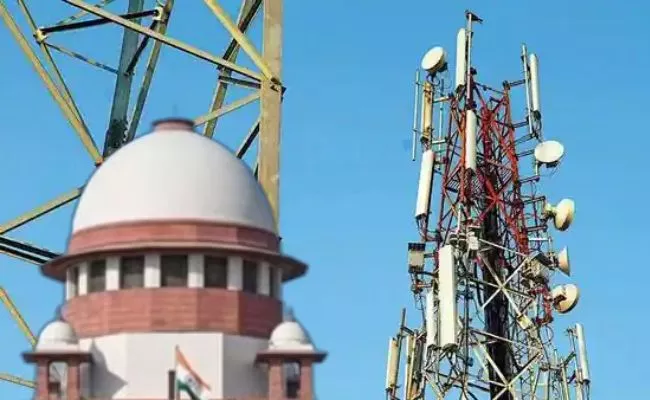.gif)
.gif)

The Supreme Court dismissed a petition filed by telecom companies, including Vodafone India and Bharti Airtel, to refigure the adjusted gross revenues (AGR) they owe to the government. The dismissal ends a long-standing legal battle over the calculation of AGR, a crucial factor in determining how much revenue telecom companies must share with the government.
The telecom companies had challenged the Supreme Court's October 2019 verdict, which ordered them to pay Rs 92,000 crore in dues within three months. They argued that the Department of Telecommunications (DoT) made critical errors in calculating these dues, which include both license fees and spectrum charges. In their curative petition, the companies claimed that the penalties imposed were "arbitrary" and that the DoT had inflated the amount owed by including non-telecom revenue in the calculation.
The AGR dispute has been ongoing for nearly two decades, with telecom operators contending that only core telecom revenue should be considered when determining their dues. However, the government has consistently maintained that AGR includes all revenue streams, including non-telecom income. The Supreme Court sided with the government in its 2019 ruling, leading to substantial financial pressure on the telecom industry.
Both Vodafone India and Bharti Airtel reported massive losses following the 2019 judgment. While Airtel deferred the payment of Rs 3,000 crore from the financial year 2018/19 by four years, Vodafone also postponed the payment of Rs 8,837 crore in additional AGR dues. These delays stemmed from new demands by the DoT, which included dues from two financial years beyond the original court order.
As of the financial year 2018/19, telecom operators collectively owe over Rs 1.65 lakh crore in AGR dues, a staggering figure that continues to weigh heavily on the sector. Despite the Supreme Court's refusal to reconsider the 2019 ruling, telecom companies remain locked in a complex financial struggle as they seek to manage these enormous liabilities.